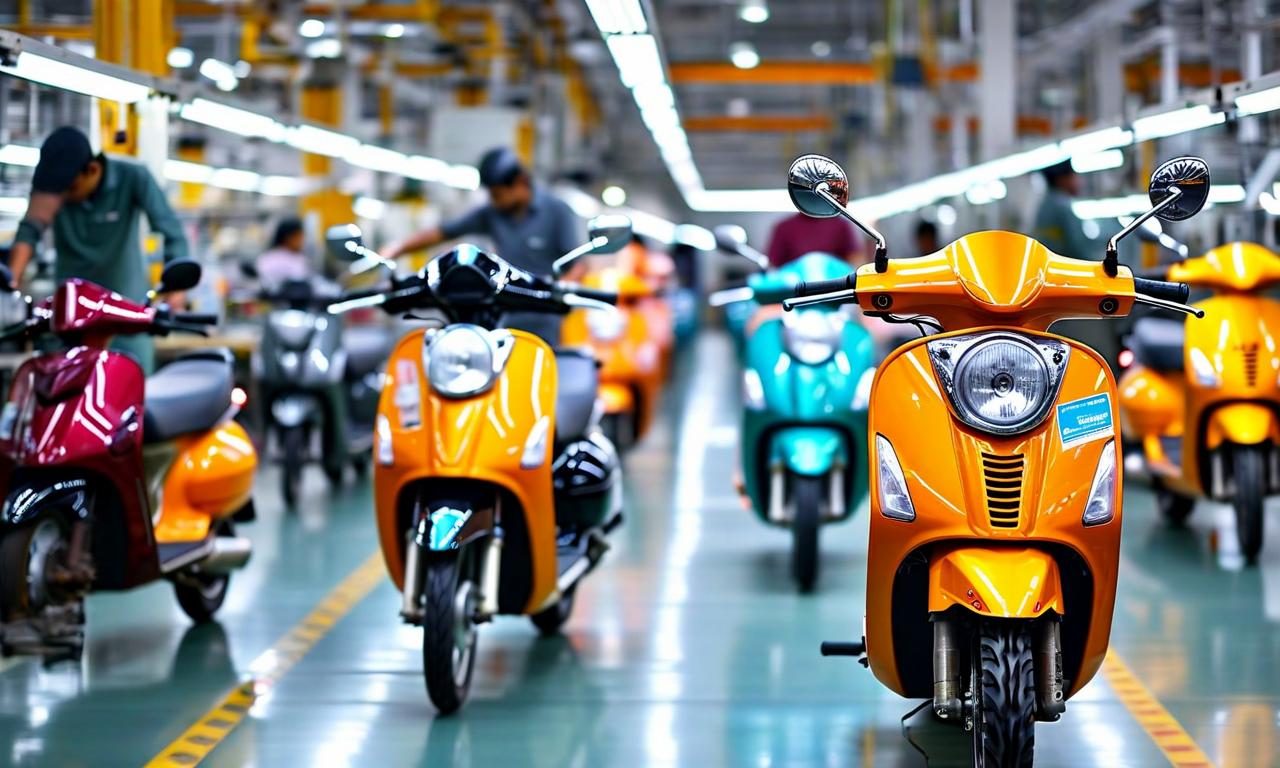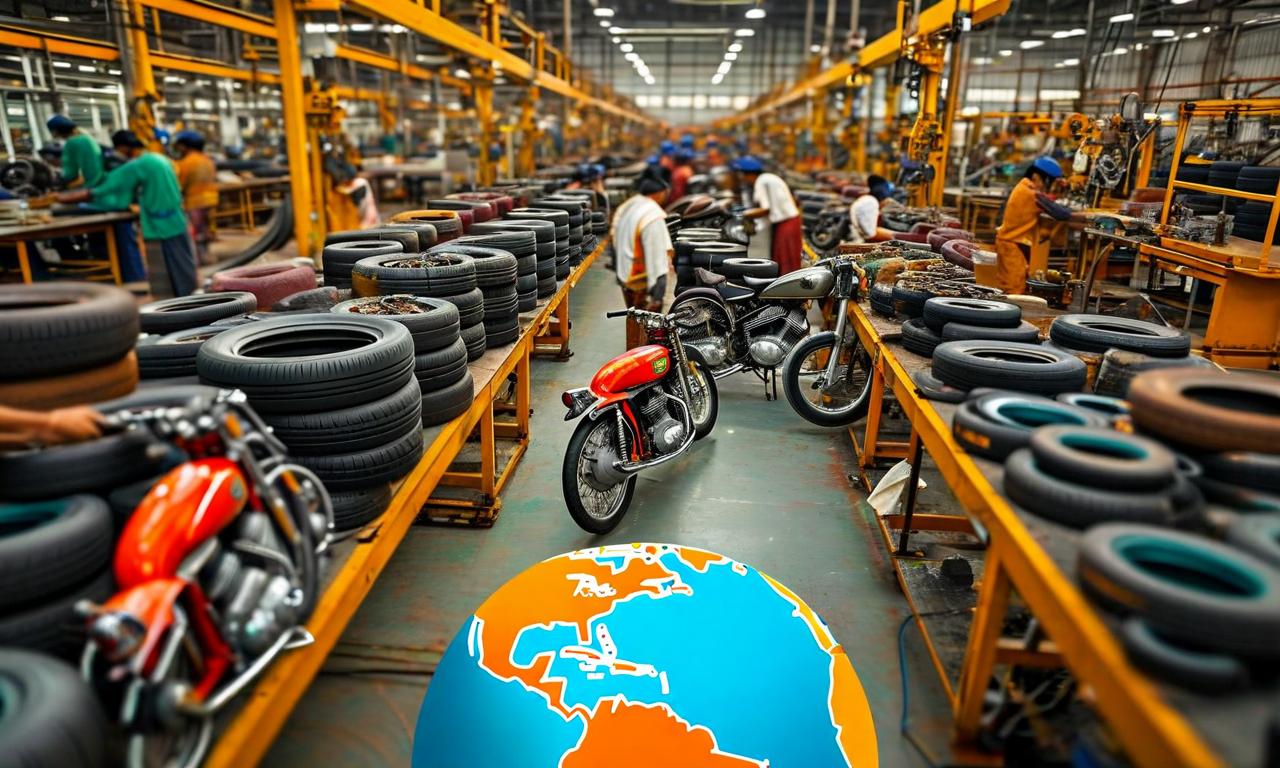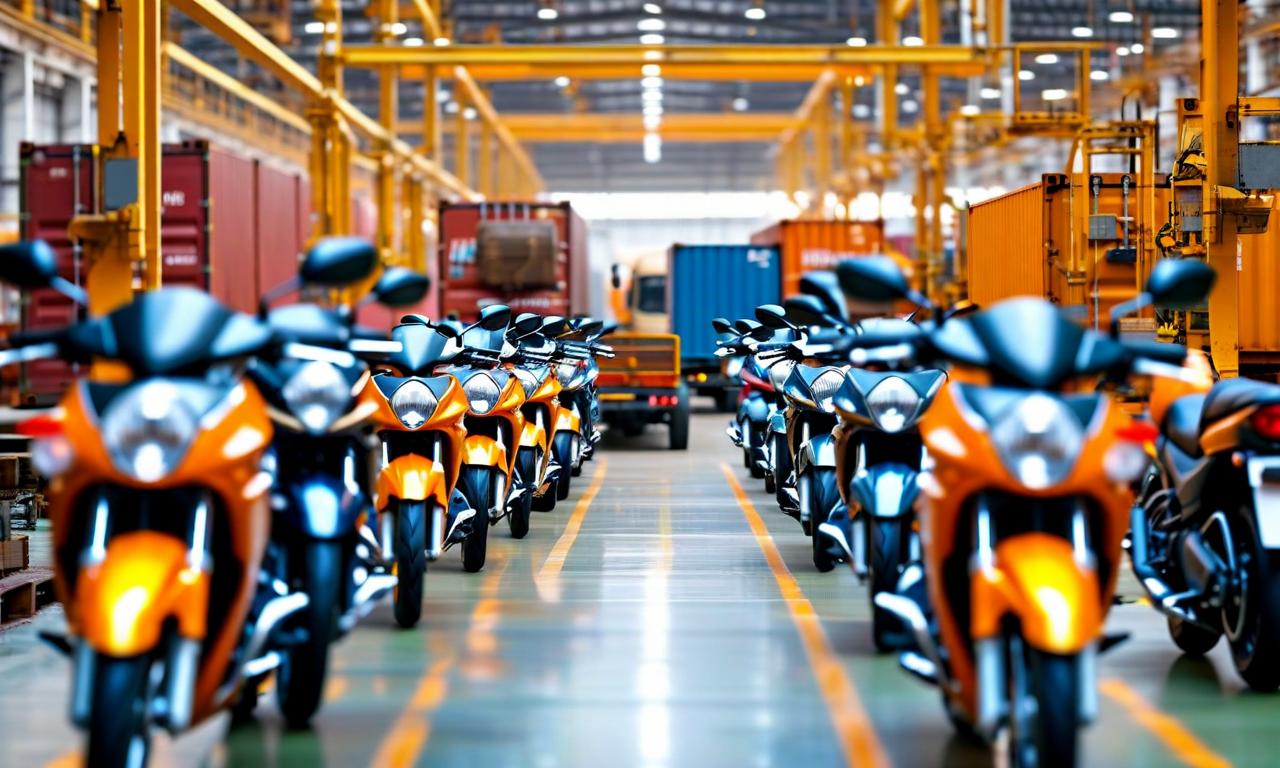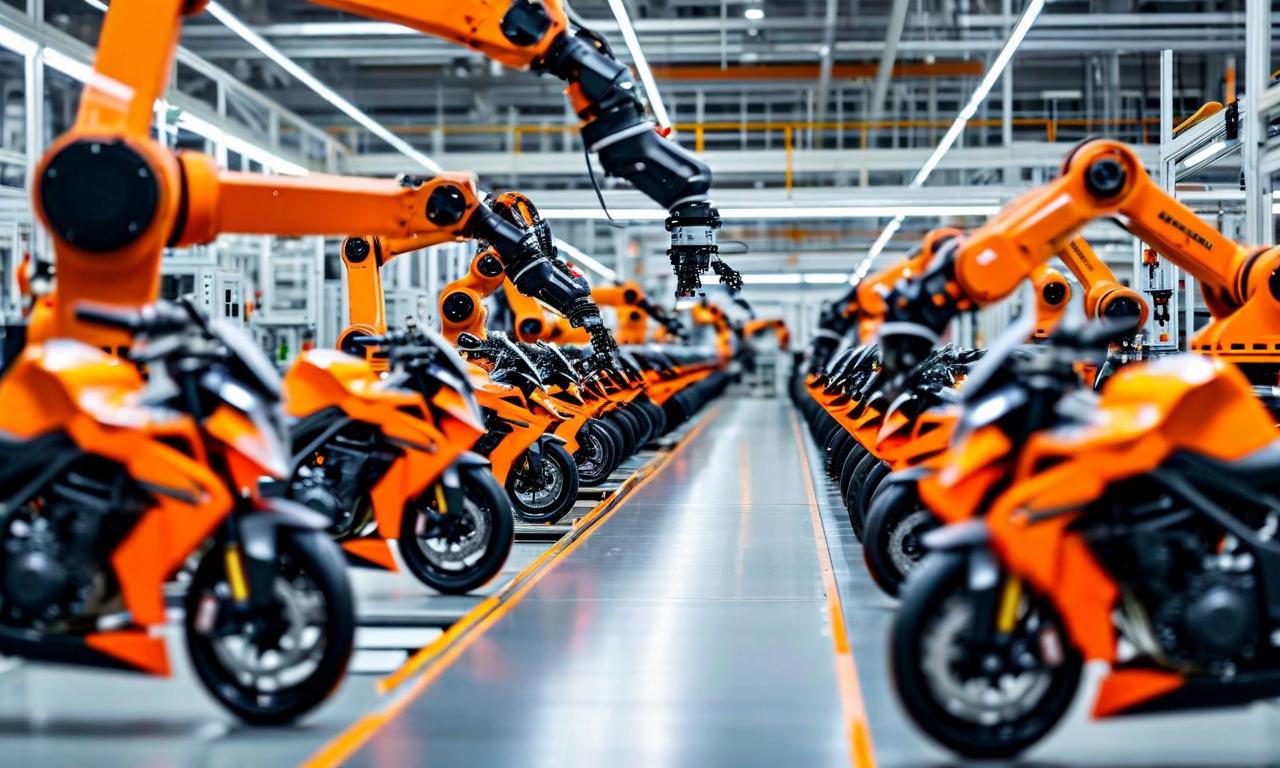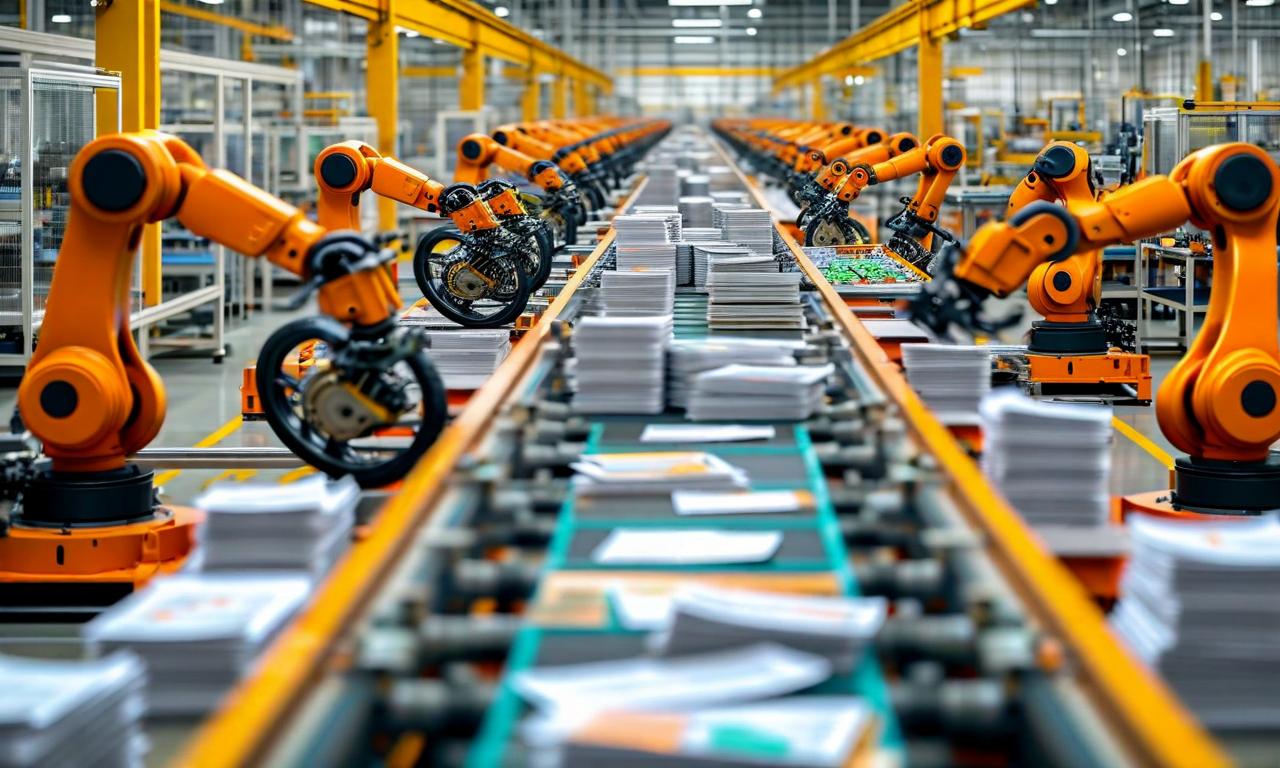Bajaj Auto Reports Strong Q1 Results Amid EV Supply Chain Challenges
Bajaj Auto posted robust Q1 financial results with a 6% YoY increase in revenue to ₹12,584.00 crores and a 5% growth in PAT to ₹2,096.00 crores. However, the company faces significant disruptions in its EV business due to rare earth magnet shortages, expecting only 50-60% of planned e-scooter deliveries and 70-80% of electric 3-wheeler targets in Q2. The company is addressing these challenges by redesigning EV motors and implementing strategies to secure the EV supply chain. Despite EV setbacks, Bajaj Auto reported strong performance in premium motorcycles, commercial vehicles, and exports segments.

*this image is generated using AI for illustrative purposes only.
Bajaj Auto , one of India's leading two-wheeler and three-wheeler manufacturers, has reported robust financial results for the first quarter, despite facing significant disruptions in its electric vehicle (EV) business due to rare earth magnet shortages.
Financial Highlights
The company posted a 6% year-on-year increase in revenue from operations, reaching ₹12,584.00 crores for Q1. Profit after tax (PAT) grew by 5% to approximately ₹2,096.00 crores, demonstrating the company's resilience in challenging market conditions.
| Particulars | Q1 | Q1 Previous Year | Change |
|---|---|---|---|
| Revenue from Operations | 12,584.00 | 11,928.00 | 6% |
| EBITDA | 2,482.00 | 2,415.00 | 3% |
| EBITDA Margin | 19.70% | 20.20% | -50 bps |
| Profit After Tax | 2,096.00 | 1,988.00 | 5% |
All figures in ₹ crores, except percentages
EV Business Challenges
Despite the overall positive performance, Bajaj Auto is experiencing significant disruptions in its electric vehicle business. The company reported that e-scooter deliveries are expected to reach only 50%-60% of planned volumes in Q2, while electric 3-wheeler deliveries will be 70%-80% of targets. This shortfall is primarily attributed to the ongoing shortage of rare earth magnets, which are crucial components in electric vehicle motors.
The rare earth shortage has already affected EV sales in June and is anticipated to cause further volume losses in the EV business during Q2. This situation highlights the vulnerability of the EV supply chain to global material shortages and underscores the need for diversification in sourcing critical components.
Strategic Response
To address these supply chain challenges, Bajaj Auto executives are taking proactive measures:
- Redesigning electric vehicle motors to use light rare earth materials, potentially reducing dependence on scarce heavy rare earth elements.
- Aiming to mitigate risks from rare earth supply issues, indicating a long-term strategy to secure the EV supply chain.
Business Segment Performance
Despite the EV challenges, Bajaj Auto reported strong performance across various business segments:
- Premium Motorcycles: Double-digit growth, with KTM and Triumph brands collectively selling over 25,000 bikes in the domestic market, up 20% YoY.
- Commercial Vehicles: Delivered over 100,000 quarterly retails for the 8th consecutive quarter, with electric 3-wheelers showing particularly strong growth.
- Exports: Reached a historic peak in quarterly export revenues, driven by double-digit growth across Africa, Latin America, and Asia.
- Chetak Electric Scooter: Retail volumes more than doubled YoY, contributing significantly to the domestic EV market growth.
Outlook
While Bajaj Auto faces challenges in its EV business due to supply chain constraints, the company's diversified portfolio and strong performance in other segments have helped maintain overall growth. The management's focus on addressing the rare earth magnet shortage through redesign efforts and supply chain risk mitigation strategies demonstrates a proactive approach to overcoming these obstacles.
As the global automotive industry continues its transition towards electrification, Bajaj Auto's experience highlights the importance of supply chain resilience and the need for innovative solutions to ensure sustainable growth in the EV sector.
Historical Stock Returns for Bajaj Auto
| 1 Day | 5 Days | 1 Month | 6 Months | 1 Year | 5 Years |
|---|---|---|---|---|---|
| +1.57% | -2.90% | +1.72% | +8.09% | +33.70% | +152.76% |

